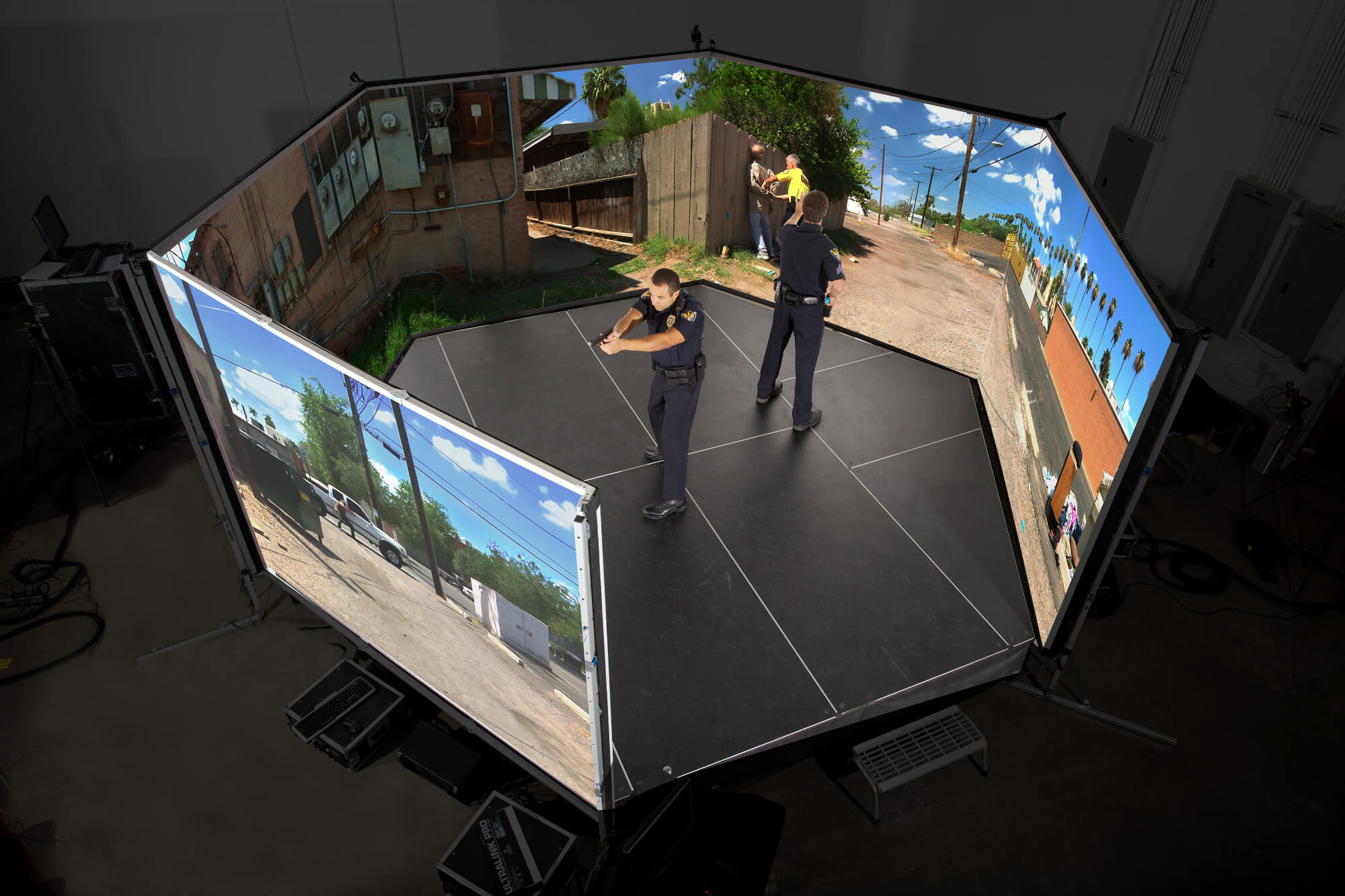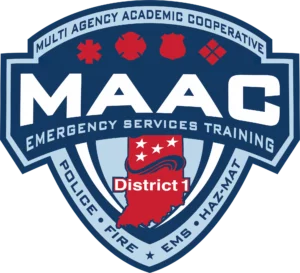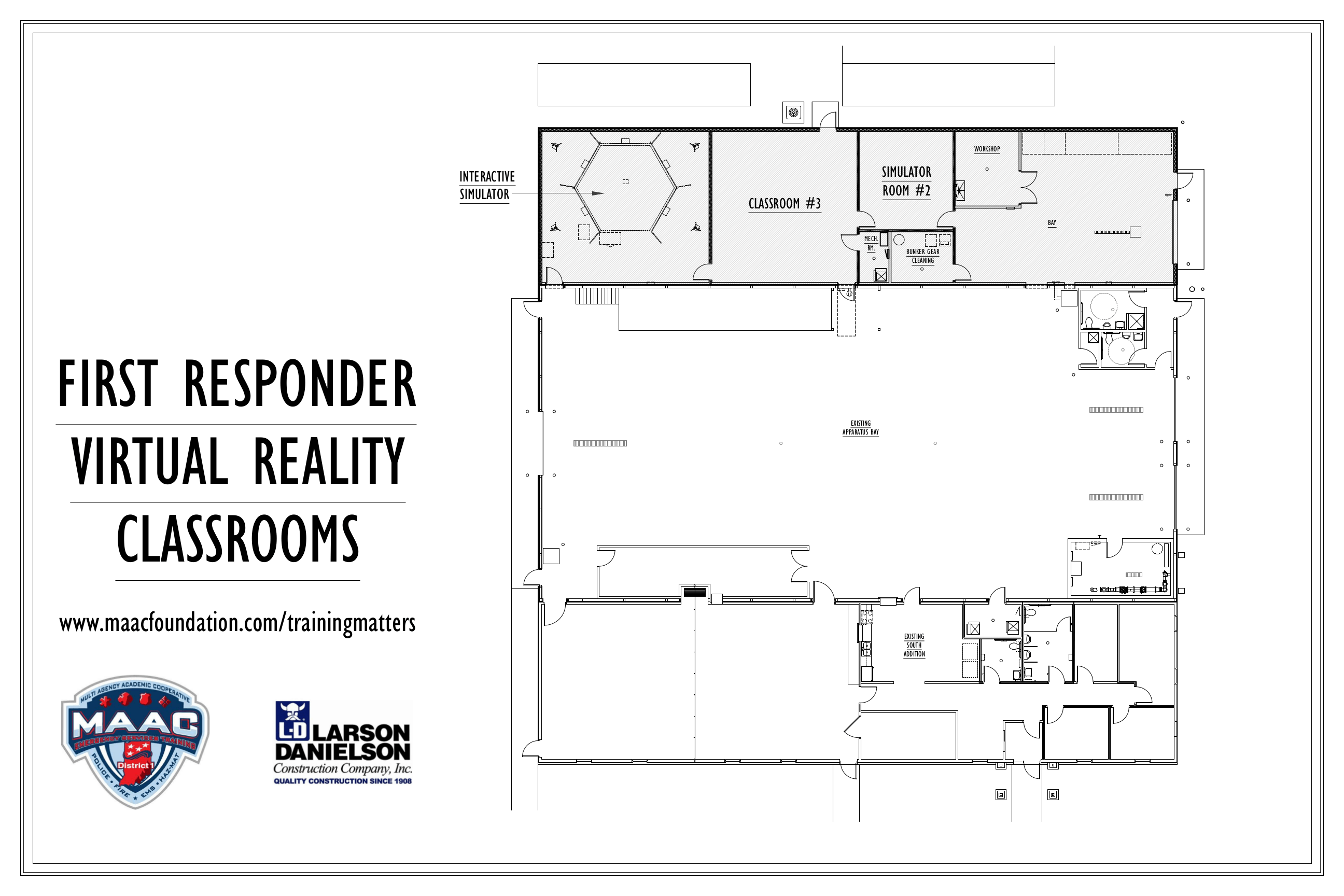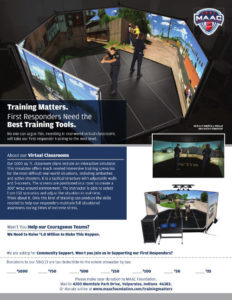Training Matters.
First responders need the
Best Training Tools.
Investing in real-world virtual classrooms will take our first responder training to the next level.
The expansion of the classrooms will include virtual reality and simulator based training. By utilizing simulator and virtual reality, law enforcement officers can be better trained in a realistic scenario based environment. Firefighters can improve incident communications and all first responders can be monitored, have deficiencies identified, errors corrected and given proper training prior to mistakes being made in the public setting.
We are asking for Community Support to reach our $1.0 Million goal. Won't you join us in supporting our first responders?
Giving Opportunities
-
Cash
Most donors choose cash and cash equivalents, whether as annual gifts, a one-time gift, or a gift pledged over a two-year period.
-
Gifts of Securities
Gifts of appreciated securities—such as stocks, bonds, and mutual fund shares—provide a double benefit. Donors receive a charitable deduction, in most cases, for the full fair-market value of the asset on the day of receipt and avoid any potential capital-gains tax.
-
Gifts of Other Assets
Real estate and other personal property, such as artwork and special collections, can be transformed into important philanthropic support for the MAAC Foundation.
-
Estate Gifts
You can make your gift through your will or estate plan. If you do, please let us know your intentions. We want to be able to honor your gift and to ensure it will be used exactly as you intend.
Funds raised to-date:
$0
We need $475,000 to reach our goal!
About Our Virtual Classrooms
Our 3200 sq. ft. classroom plans include an interactive simulator. This simulator offers much needed immersive training scenarios for the most difficult real-world situations, including ambushes and active shooters. It is a tactical structure with adjustable walls and 5 screens. The screens are positioned in a room to create a 300° wrap-around environment. The instructor is able to select from 150 scenarios and adjust the situation in real-time. Think about it. Only this kind of training can produce the skills needed to help our responders maintain full situational awareness during times of extreme stress.

Donor Bill of Rights
Philanthropy is based on voluntary action for the common good. It is a tradition of giving and sharing that is primary to the quality of life. To assure that philanthropy merits the respect and trust of the general public, and that donors and prospective donors can have full confidence in the not-for-profit organizations and causes they are asked to support, we declare that all donors have these rights:
- To be informed of the organization's mission, of the way the organization intends to use donated resources, and of its capacity to use donations effectively for their intended purposes.
- To be informed of the identity of those serving on the organization's governing board, and to expect the board to exercise prudent judgment in its stewardship responsibilities. To have access to the organization's most recent financial statements.
- To be assured their gifts will be used for the purposes for which they were given.
- To receive appropriate acknowledgment and recognition.
- To be assured that information about their donations is handled with respect and with confidentiality to the extent provided by law.
- To expect that all relationships with individuals representing organizations of interest to the donor will be professional in nature.
- To be informed whether those seeking donations are volunteers, employees of the organization or hired solicitors.
- To have the opportunity for their names to be deleted from mailing lists that an organization may intend to share.
- To feel free to ask questions when making a donation and to receive prompt, truthful and forthright answers.
The text of this statement in its entirety was developed by the American Association of Fund-Raising Counsel (AAFRC), Association for Healthcare Philanthropy (AHP), Council for Advancement and Support of Education (CASE), and the Association of Fundraising Professionals (AFP), and adopted in November 1993.
Donations to our 501(c)3 are tax deductible to the extent allowable by law.



